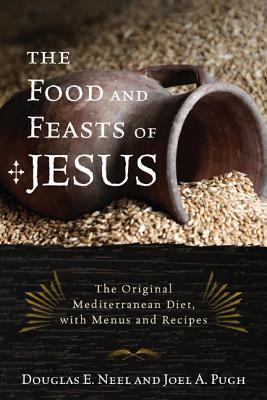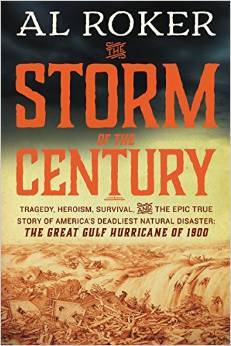Rating: 4 Stars
Review:
As anyone who knows me may have guessed by now, I am something of a reader. I devoured books left and right from elementary school on, and this love of reading (and writing!) was fostered even more in 6th grade by quite possibly one of the best teachers I have ever had, Mr. Hanzlik - more affectionately referred to simply as H. Seriously, he's one cool cat, and even the kids who hated reading loved his class. Well, in 7th grade I proudly told Mr. H I had finally found a book that might slow me down a little in my reading endeavors - the Bible. I remember this moment and him chuckling, saying only that it might. I had started it in an attempt to read it cover to cover and made it to Deuteronomy. I am kind of embarrassed to admit that in terms of cover-to-cover, I never made it any farther. Since then I have read different books of the Bible, there are my favorites that I can read over and over (Hello, Matthew!), but I have never been able to go start to finish, and my lone attempt remains that try in 7th grade. However, after reading this book, I am inspired to try again, but more about that later.
Firstly, the author, David Plotz, is Jewish, so naturally his interpretation and relationship to the Bible is going to be different than mine. I am, to use the umbrella term, Protestant; baptized Lutheran, confirmed Methodist, now a member of a very wonderful Covenant church that is everything I have ever wanted a church to be with wonderful pastors and a congregation that has made me feel so welcome since my first service a year and a half ago. Plotz set out on this journey to read the Bible (or, the Old Testament, for us Christians) to see what kinds of insights and such he can glean for himself without someone telling him what this story or that really means. He is a self-proclaimed non-practicing Jew - one who is not particularly observant, vaguely knowing it when it is Sabbath, and rarely attending Synagogue. While at a cousin's bat mitzvah, he grows bored and opens the Torah, coming across the story of Dinah's rape and her brothers' subsequent revenge. Plotz is horrified not only by the story, but kind of of the realization that there is a lot in the Bible that he thought he knew, but actually doesn't. This book is the product of his year spent reading the Bible and his observations and thoughts along the way. He points at that even in the stories he thought he knew, those of Jacob vs. Esau, Cain vs. Abel, David, Solomon, etc., there were many things he did not.
While Plotz uses humor and sarcasm, he has some really great insights that I think a lot of people might come to when reading the Bible on their own. I do take issue with some of the conclusions he draws, as he sometimes looked only at a specific event instead of the big picture. But by and large that was not terribly common and he made a lot of great observations.
In the middle of Plotz's Biblical journey, he takes a trip to Jerusalem, to walk in these places that he is reading about. I am very jealous, as this is something I want so badly to do. I can't even begin to imagine being in these places where so much history has occurred, and to walk the place of the Bible, to see some of these places unchanged for thousands of years. I feel a kind of sadness for Plotz though, as the trip has brought him closer to the places he is reading about, but not to God. He says of the trip, "but I leave no more certain that God was here when it happened." Plotz talked about how thrilling it was to see these places, but I felt as I was reading that couldn't that be God working though his experience with him, speaking to him? I don't get the sense from Plotz that he really WANTS to believe in God, so maybe that is why this does not occur to him? He just doesn't see to be able to acknowledge perhaps he feels this way because God is present with him at that moment.
Plotz continues to read the rest of the Old Testament, and his own conclusion leaves me a bit heartbroken for him. I find it interesting that this journey through the Bible brought him closer to his religion, his Jewishness, so to speak, but farther from God, if possible. He says, "I leave the Bible as a hopeless and angry agnostic. I'm broken-hearted about God." And this is perhaps where the differences of our two faiths became most apparent as I was reading, and this is something Plotz acknowledges. He relates how he has discussed this with Christian friends, who say it is all a set-up for the New Testament. Plotz points out though, "But that doesn't work for me. I'm a Jew. I don't, and I can't, believe that Christ died for my sins. And even if he did, I still don't think that would wash away God's epic crimes in the Old Testament." This line made me just so sad for him. But again, that shows where and how our beliefs differ from Judaism to Christianity.
There were a lot of great quotes Plotz has throughout. Here are a few of my favorites:
In regards to the laws of Leviticus (page 59): "But if there's anything I've learned from these months with the Good Book, it;s that we all have our own Bible. We linger on the passages we love and blot out, or ague with, or skim the verses that repel us. My Bible, I suppose, has a very long Leviticus 19, and a very short Leviticus 18."
Page 81: "So Numbers 27 is a liberal's paradise: the first lawsuit, the first women's rights, the separation of church and state."
Page 128: "Saul, like a greedy president or King Henry VIII, is trying to undo the separation of powers."
Page 131: " 'The shaft of his spear was like a weaver's beam, and his spear head weighed 600 shekels.' I don't know what that means, but it sounds scary."
Page 142: "Question: how do Christian denominations and colleges that forbid dancing reconcile their position with God's obvious love for the cha-cha."
I really appreciated Plotz taking on such a behemoth of a task. Like the author, there were many things I thought I knew about the Old Testament, that I learned in Sunday School or Confirmation classes in high school, but it turned out I only had part of the story. I would agree with Plotz that Samson was a total meat head - how did he NEVER catch on that Delilah was plotting against him the whole time?! I also didn't know he had been married before Delilah came along. I was also unaware that David had a son with Bathsheba BEFORE SOLOMON. I don't know why this is news to me, and I felt at times as I was reading like the Bible was a completely foreign text to me. I also didn't know/recall Jonah being such a baby when God decided to save Nineveh after He ordered Jonah to go and Jonah first refused (and thus the whale had to help him along on his journey).
I also never realized how many phrases we still use today have their roots in the Bible. Plotz points out many of them, more than I made note of, but a few examples include a leopard not being able to change his spots, and the root of the awful word jeremiad (I can't remember the book I recently read that used this word incessantly, but now I know where it came from - Jeremiah and his long-windedness!) The phrase about 'picking up the mantle' is another example. Plotz sums it up nicely, saying (page 300): "It was as if I lifted a veil off my culture. You can't get through a chapter of the Bible, even the most obscure book, without encountering a phrase, a name, a character, or an idea that has come down to us from 3,000 years ago,"
A few other things of note as I wrap this up:
I was glad to see that the story of David and Goliath lived up to Plotz's childhood memories and that in turn it lived up to mine too. This has always been one of my favorite stories and as we approached it, I was concerned there would be something I had not been taught in Sunday School that would come to light and ruin it. Luckily, this did not happen and my memory of this story is safe.
Plotz suggests, due to Isaiah's temperament (he describes reading Isaiah's book as "like being trapped in an elevator with Al Sharpton") adding the phrase "You idiots!" to the end of any verse in Isaiah. it turns out pretty funny. I recommend you try it too.
From Plotz's summary alone, Ruth might be my favorite book. I have yet to read it in its entirety, but I plan to very shortly. Maybe even after I finish this review.
So, in the end, I highly recommend this book. You may not agree with every conclusion that Plotz comes to, but I learned so much more about the Old Testament than I thought I would - mostly because I thought I already knew these big stories. Turns out I didn't know them as well as I thought. Like Plotz, many things God did made me angry, made me question Him, made me want to know more. It also made me angry at times at David, Solomon, and a myriad of others I thought were so upright and constantly faithful.
The last quote I will leave you with sums up nicely how to reconcile this very problem:
"It reminds us that the Bible is not an idealization, but a book written by (and about) real people, who can be both scornful and kind, faithful and cruel, sarcastic and sweet - as their God can be, too." I think this is so important to remember. I learned so much more about people from the Bible who I thought I knew, but it is important to remember that they were people too. Not perfect, but sometimes deeply flawed. Still, God chose them to perform amazing feats, in spite of or because of those very flaws. I am inspired to start again - and this time finish - what I began in 7th grade. It might take me a year - or longer, as I of course intend to read the New Testament as well - but that is my goal.





















